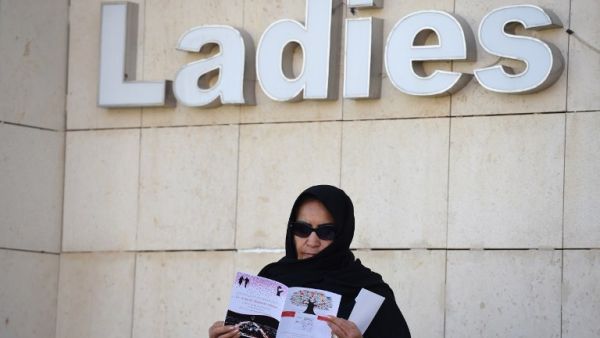“We would like to communicate with Saudi women,” began the esteemed New York Times newspaper on its Twitter Account this week. “Tell us about your lives, ambitions and opinions in the Saudi community.”
To most readers the tweet might have seemed relatively well-meaning, if rather presumptuous. Tied to a new documentary produced by the the journalist Mona el Naggar, it accompanied a survey full of Arabic questions about Saudi women’s lives and aspirations, and was the newspaper’s first tweet in Arabic.
In Saudi, however, the attempt to reach out didn’t go down well.
Women in the Kingdom quickly responded to the question with irritation and offense, deeming the request to hear women’s experiences an example of false concern, interference and superficial intrusion into the complex lives of Saudi women.
@nytimesworld we would love to hear from the american woman, especially ab this pic.twitter.com/wHUlQxo1qm
— أم خالــد (@RahlounM) 24 October 2016
Many responses drew attention to the high levels of sexual violence and poverty experienced by women in America, and urged the newspaper to focus on problems at home before those in the Gulf. Some of the responses had an air of conspiracy, and many women felt the paper sought to canvas their experiences in order to attack their country’s record on women’s rights.
#فيديو يوثق #جرائم_امريكا_ضد_المرأة وجرائم الشرطة هناك ضد النساء والأطفال#لا_تقولون_للنيويورك_تايمز
— #الراصد #2030 (@saudi_Observer) 25 October 2016
pic.twitter.com/pEzQLsbUkm
A video that is documenting US crimes against woman and police crimes there against women and children.
#لا_تقولون_للنيويورك_تايمز
— مشوح بن سالم (@M7Msj) 25 October 2016
جندي امريكي يتحدث عن جرائم الاغتصاب في العراق ويعترف بغتصاب فتاة في العراق حتى انتحرت … حسبنا الله عليك يانتن pic.twitter.com/0J3G78r7hU
A US soldier speaks about rape crimes in Iraq and confesses to raping a girl until she killed herself. You stink to high heaven.
Actually, you should worry about protecting kids & women in US.
44% of rape victims are kids under 18!
What a rape culture!@nytimesworld pic.twitter.com/vuPpvH39qC— الواعي (@wa3i_2020) 24 October 2016
Others urged fellow Saudi women to respond to the call – but only to demonstrate the joys of life as a Saudi woman in the hope that their US counterparts might try to emulate them.
ليش خايفين من أن صوت المرأة يوصلهم؟ خلوا الملكات يتكلمون عشان يوصل صوتهم للغربيات ويحسدونا ويطالبون يكونون زينا. #لا_تقولون_للنيويورك_تايمز
— Anon (@dontcarebut) 25 October 2016
Why are you afraid that these people will hear the voice of woman? Let the queens speak so that their voice will be heard by foreign women and they envy us and start demanding being like us.
The response to the video wasn’t entirely negative, however. Many took issue with those who condemned it, arguing that attempts to cross geographic and cultural boundaries should be applauded and attempts to silence women had no place in Saudi - US dialogue.
اذا ماتبون البنات يتكلمون للصحيفة ، انتم تاكدون على انهم يعيشون في دوامة مشاكل في السعودية ؟ ليش ماتلتفتون لهم ؟#لا_تقولون_للنيويورك_تايمز
— جيوڤاني (@FA4_44) 25 October 2016
If you do not want girls to talk to the newspaper aren’t you just confirming that there are problems in Saudi? Why don’t you just care about them?
#لا_تقولون_للنيويورك_تايمز
— Bandar almogtrb (@iijjt) 25 October 2016
الأمير محمد بن سلمان بنفسه يصرح للصحف الأجنبية ، محد قال انه خاين أو تغريبي. pic.twitter.com/UGh6B6FF7K
Prince Mohammad Bin Salman himself is giving statements to foreign newspapers. No-one ever said that he’s a traitor or following the West.
Saudi media joined in on the outrage with (male) columnist Ibrahim Abu Zayed claiming the the newspaper was “practicing a delusion for the purpose of defaming Saudi Arabia internationally”.
BS







